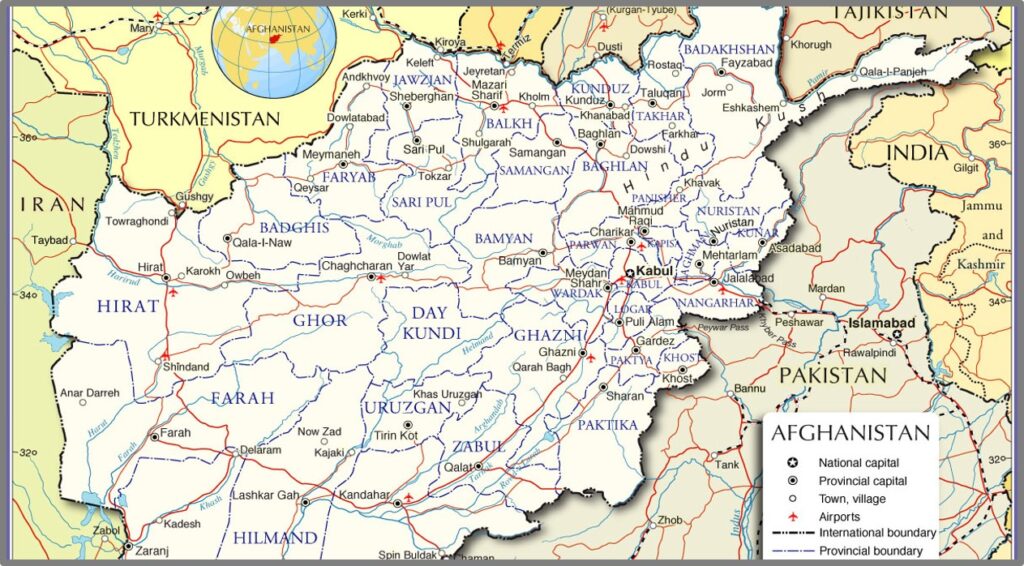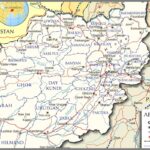Afghanistan – Level 4: Do not travel.
Travel to all areas of Afghanistan is unsafe because of critical levels of kidnappings, hostage taking, suicide bombings, widespread military combat operations, landmines, and terrorist and insurgent attacks, including attacks using vehicle-borne, magnetic, or other improvised explosive devices (IEDs), suicide vests, and grenades.
This post appeared on the U.S. State Department travel information website and the U.S. Embassy Afghanistan homepage in April 2019. We saw the same warning in 2005 when I moved to this Central Asian country with my husband to serve as the founding principal of the International School of Kabul (ISK).
Western Culture Expectations
The news reports beginning in September 2001 contained startling information and scary photos about fighting, bombing, death, and the general danger of Afghanistan. Our family and friends expressed their dismay over our decision to relocate to this war-decimated and poverty-stricken place.
“Will you be safe?”
“We’ll be praying for your safety.”
The internet and online news made it easy to obtain information about events and current crises during our time in Kabul. This was not always helpful in the hands of people living outside of Afghanistan. Sometimes the risk or damage assessment sent over the airwaves did not measure up to my reality. Since I was actually living in the vicinity of the disturbance, I felt there was often exaggeration or other misrepresentations of the situation. Frequently, I had to make assurances to my children and supporters that things were not as bad as the media presented.
But sometimes it was truly terrible news. Like the mortar blast we experienced next door to the school in November 2005 and city-wide political demonstrations that caused us to lockdown the campus. Like the explosions and kidnappings and break-ins and murders happening over the years to foreigners—people I knew personally.
Growing Through Risk
In the midst of my busy ISK life and with our dedicated guards and safety plans in place, I did not think about danger all the time. But I couldn’t deny that risk was part of my life in Kabul every day.
Still, safety did not drive my decision about living and remaining in Afghanistan, though I was stretched and stressed. I chose to fulfill my call, to trust God that He would lead me through any crisis. I could have left after my first two-year contract was completed. However, I stayed for almost five more years, making peace with the risks. Consequently, I learned many lessons about what I could handle, one being we don’t have to feel safe to grow and thrive.
In these days of the COVID-19 virus, the whole world is scared and anxious for the present and the future. So much is unchartered territory and a dangerous guessing game when it comes to decisions about safety for our health and economic needs. How should we respond?
God’s Viewpoint
Psalm 59:9 (TLB) says: O God my Strength! I will sing your praises, for you are my place of safety.
When we make earthly safety our first priority, we may exclude opportunities to experience life on a truly transformational level. We may miss the chance of a lifetime to understand new cultures, the global impact of our talents and abilities, and indeed, what inner strength and resiliency we possess.
We must open our eyes and see God at work, beyond what we might understand or imagine in the midst of our trouble. Finding our safety in our relationship with Christ and God’s eternal promises has much more stability than human strategies to changes and challenges.
Check your own safety thermometer with God. If you are dismissing a viable possibility to learn, grow, and give because it holds risk, perhaps you should rethink, plan well, take a deep breath, put your hand in His, and go for it.
*****This article contains excerpts from the award-winning book Unveiled Truth: Lessons I Learned Leading the International School of Kabul (2019). Purchase a signed copy at: https://gailgoolsby.com/buy-book/






